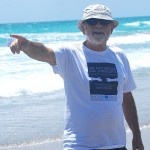About 15 years ago, we went in search of a new home, and a new type of home. Somehow the concept of co-housing had floated into our head space. We were attracted to the idea of ‘building a better society, one neighborhood at a time,’ to quote the current official cohousing slogan. This was pre-grandchildren and the appeal of sharing a planned community with people of all ages, including small children, seemed vastly more appealing than the 55+ adult gated communities then being marketed. So we signed up for a co-housing conference in Maryland where a new community was forming, and the following year we toured four communities, Cantine’s Island, in Saugerties, NY, award-winning Windsong in Langley, BC, Quayside Village in North Vancouver, and Trillium Hollow in Portland, OR (a city where some of our family already lived). Of these, only Windsong was completed and occupied at the time. We attended open houses at all of these, and spent a night at Windsong. We even joined two of them at the minimal membership level. People were friendly and welcoming, some were close to messianic about their chosen form of living. Forming a co-housing community is a long and challenging process and a few ‘burning souls’ are essential to sustain the effort.
We supported the living lightly on the planet philosophy of co-housing communities of which EcoVillage in Ithaca, NY, is perhaps the best known example. We liked the self-governance ideals, the espousal of diversity. We were attracted to the idea of a neighborhood planned to maximize contact among the residents, a kind of y’all come, potluck ethos very different from most suburbs, including where we live now in South Florida.
The closest we’ve come to that kind of community sensibility was our eight years in Hoboken, NJ, where everything one needed was within walking distance. If street life didn’t bring you into contact with a neighbor or two and the possibility of a social event, stoop life — hanging out on a balmy evening on your own front steps — certainly did. It was a small town in every sense of the word, with Manhattan right across the Hudson River.
For us, the downside of co-housing was governance by consensus. At one of the just-forming communities we toured, I sat next to one of the members in a meeting. An open house usually includes a pot luck and an invitation to whatever is happening so visitors can get a sense of community process. This meeting was about landscaping and it went on and on and on, and finally broke up with no decision. The woman looked at me very kindly and said, “If you’re serious, get used to it.” I gather that some communities have modified this form of governance.
Today, as co-housing has evolved and grown (there are communities in 37 states and several Canadian provinces), there is more variation in community aspirations including the introduction of the concept of co-housing for elders (a word I prefer) developed by architect and co-housing in America champion, Chuck Durrett. I’ve heard Chuck speak at an American Society on Aging session and his arguments (read here) for elders living in a community are starting to make a lot of sense to me…again. I guess you could say it’s deja vu all over again, but with a sense of urgency that I could not have experienced in a pre-grandchilden, pre-Inconvenient Truth, Union of Concerned Scientists report world.
More reading:
Senior Cohousing: A Community Approach to Independent Living, Charles Durrett
See also: Dr. Bill Thomas’s The Greenhouse Project


